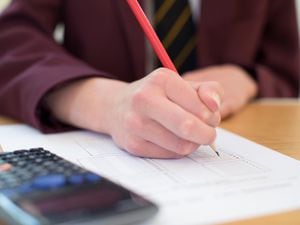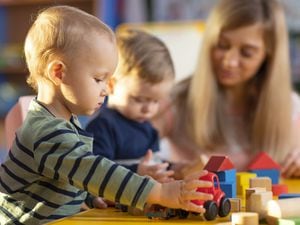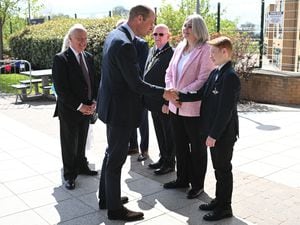The fears of preparing for the transition from primary school to secondary
There’s something comforting about primary school life, like being wrapped in a cosy blanket with a mug of hot chocolate.

Even now, I reflect on my time at Sundridge Primary in Birmingham, in the late 70s and early 80s, with great affection.
Teachers were warm, friendly and inspirational, lessons gave you the chance to develop your creative side and playground life, playing conkers and football, while pretending to be Luke Skywalker, was even greater fun.
And, so, when my daughter Eleanor, now 9, took her first steps from nursery to school, I kept my emotions in check.
Well, there might have been a little tear in the corner of my eye but it was more the idea of her growing up than any great concern for her. I knew, if she was anything like me, she’d have the time of her life.
That has been the case but now, as the years seem to pass by with increasing speed, and the time is nearing to start considering secondary school, I’m feeling very differently.
Nervous, anxious, worried, scared – I’m full of angst when thinking about her future.
Making the transition to secondary school feels like someone is ripping that comfort blanket from your grasp and taking a swig of your hot chocolate.
Eleanor is surrounded by a fantastic group of friends and caring teachers right now and we can head off to work safe in the knowledge she’ll be fine.
But ‘big school’ feels like a different proposition. Towering buildings, huge, long corridors, more (and bigger) children, timetables with multiple lessons and dreaded exams.
It feels terrifying but does the transition have to be that way?
I caught up with Lisa Lockley, assistant headteacher at John Willmott School and a transition lead for the Arthur Terry Learning Partnership, in the hope of allaying some parental fears.
And she was able to give some brilliant advice on helping to make sure your child settles into secondary school life with more ease which is, of course, what parents are worried about more than anything.
“If I am being honest, the worries of parents far outweigh the students,” Lisa said. “They can project their fears of the big wide world onto the children.
“It would be safer and easier for us to keep our children in their bubble. A primary school is a ready made community and the children have been together all the way through, all of that time and they have one teacher a year.
“A primary school has become safe to them and us, as parents, so the move to secondary school is a big step.”
A big, daunting step, certainly, but the key, Lisa says, when preparing your child is to make it a positive, exciting one.
She says, as parents, we need to become cheerleaders rather than problem solvers.
“It might feel scary, as a parent, because you are handing over your most precious thing to these people you don’t know,” she says. “You are asked to have a faceless trust and that is a massive ask.
“And from a child’s point of view, they are leaving many of their friends behind and will not just have one teacher but several.
“So, as parents, you need to enthuse your child. You have to encourage them to step out of their comfort zone and belong to a new community.
“There are so many opportunities out there for our students when they come to ‘big school’.
“Of course, they could dwell on negatives such as ‘I won’t be with my friends’.
“As parents we should say ‘just think of all the new friends you are going to make that you can tell your other friends about’.
“Your child might say ‘I’m not sure about these new lessons, Spanish, drama and all’ but you can say ‘Isn’t it exciting, your trying new things?’
“It is flipping the mentality, a mindset thing.
“Yes, it’s a massive time in their life but this is a chance to make friends from different walks of life, different cultures. It’s an amazing opportunity for them to look beyond their own experiences.
“It’s going to change but it is going to do so in a precious way. They will be asked to do things they have not done before but what a great opportunity that is.
“Your child will be doing new subjects they might find they are super talented at.”
And Lisa says that the most important thing for parents and children to realise is that, just like at primary school, teachers will be there to support the transition and beyond.
“Ultimately we all want the same thing and parents can’t see teachers as obstacles to their child’s happiness but, rather, a way to achieve that happiness,” she adds. “We are not big, scary ogres and it’s a partnership.
“And I think we can under-estimate how resilient students are and you would be surprised at how they thrive and blossom.
“It’s a time for them to mature and experience. It’s the next stage now of their development when they develop their own initiative. There will be bumps along the way but it will be a whole new life adventure.”





